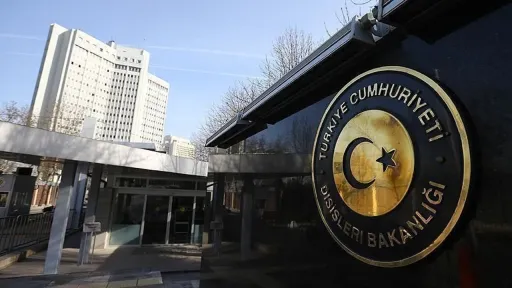On July 17, 1998, representatives from 160 nations met in Rome, Italy, to finalize a statute establishing an International Criminal Court.
Despite much controversy, the conference ultimately adopted the Rome Statute, with 120 countries voting in favor, seven against, and twenty-one abstaining.
The International Criminal Court (ICC) would come into existence once 60 nations ratified the treaty. Although the statute was initially drafted in Rome, it was later amended in 1998, 1999, and 2000.
The Court was officially established in January 2002, after 60 signatory states, 22 of them from Africa, ratified the treaty. Today, the ICC has 125 member states, including 33 African nations, with its headquarters in The Hague, Netherlands.
The idea of establishing the ICC emerged after several special and temporary criminal courts were created following World War II to prosecute war criminals, as well as later tribunals in the 1990s and 2000s that addressed war crimes and acts of genocide in Sierra Leone, Rwanda, and the former Yugoslavia.
Created with the support of Western European countries, Canada, and Australia, the ICC was established as a permanent court to try individuals accused of the most serious crimes of international concern, namely genocide, crimes against humanity, war crimes, and the crime of aggression, with the goal of ending impunity and extending justice to victims.
The European Union strongly promoted ICC membership to the extent that in the 2000s it threatened to cut ties, including tied or conditional aid, with African states that refused to join.
Soon after its formation, the ICC began taking up cases primarily from Africa. Until recently, more than 90% of the cases handled by the Court originated from the continent.
Two African leaders, the then President of Sudan Omar al Bashir, and the Kenyan President, along with his deputy William Ruto (now the current Kenyan President), faced prosecution by the Court under pending arrest warrants.
They were later acquitted, but their cases sparked outrage within the African Union, leading to sharp criticism and calls for the total withdrawal of African states from the ICC.
Perhaps the most controversial case, which deepened doubts among many African statesmen about the Court, was that of the Ivory Coast, a non-signatory state.
In this case, the legally elected president, Mr. Laurent Gbagbo, was brought before The Hague with the intervention of French troops stationed in the country, only to be acquitted in 2019.
On the other hand, since the creation of the ICC in 2002, serious crimes against humanity, war crimes, and crimes of aggression have been committed by member states such as the United Kingdom during its invasions of Afghanistan and Iraq.
However, the Court has failed to investigate these crimes, as well as those committed by the United States, Israel, Syria, Sri Lanka, and several others.
For instance, in the case of Israel which has been accused of Apartheid and serious violations of human right, the Court took no action until November 2024, when it issued arrest warrants for Israeli Prime Minister Benjamin Netanyahu, and his former Defense Minister, Yoav Gallant.
In the past, Israeli officials intimidated former ICC Prosecutor Fatou Bensouda and her family, while the United States sanctioned her and barred her from entering the country.
The U.S. went even further by imposing sanctions on current ICC prosecutors and judges for investigating suspected Israeli war crimes.
The current ICC head, Mr. Karim Khan, has also faced intimidation from these same countries both openly through the media and covertly through diplomatic channels.
In a 2024 interview with CNN, he revealed that some European leaders privately told him that the “ICC was created to prosecute thugs like Putin and African despots.” This proves the narration of some prominent African diplomats calling the ICC as “a neocolonial institution”.
Since October 8, 2023, Israel has been carrying out what many describe as the first televised genocide in human history. The ongoing Israeli war crimes have exposed the double standards of the ICC and many European countries.
With the exception of a few, such as Spain, Ireland, and Norway, most European nations are still debating whether Israel is committing genocide, even going so far as to challenge the very definition of genocide as outlined in the Rome Statute.
Israel has killed more than 70,000 Palestinians, primarily women and children, in Gaza, while systematically destroying everything essential to life, including schools, hospitals, residential areas, water systems, telecommunications, and energy infrastructure, all of which are shown on television.
Soon after 7 October, genocidal rhetoric has been very rampant in the country. To the level of demonizing the Palestinians the then defense minister Gallant calling them “human animal”.
Israeli officials, diplomats, members of the Knesset and Cabinet, the army, the media, and numerous civilian figures are openly inciting hate speech and calling for the extermination of Palestinians and the annexation of their land, even resorting to starvation as a weapon.
Yet, only two individuals have had arrest warrants issued against them, while the vast majority of those responsible for the genocide continue to go unpunished.
The ongoing genocide in Gaza has revealed the true face of the Europeans who once advocated for the ICC.
Europe being one of the main contributors financially to the ICC, they have effectively undermined the court’s credibility, with some calling it biased or anti-Semitic, and even countries like Hungary withdrawing from it.
Israeli media is complicit in the genocide and must be held accountable, while Western media outlets have also played a role by inciting hatred and portraying Palestinians as less human attempting to redefine crimes against humanity.
Both the former (Joe Biden) and current (Donald Trump) administrations, along with diplomats, many European countries, including the UK and France, as well as Canada and Australia, are fully or partially complicit in the ongoing genocide in Gaza by providing Israel with the necessary means, diplomatic cover, weapons and financial assistance to carry it out.
The Israeli officials responsible for genocide, including Gallant and Netanyahu, have continued to travel freely around the world, even to ICC member states, without fear of arrest, placing the court’s global credibility in a state of paradox.
The strange thing is that the western nations highly stating for the arrestation of Russia President Putin, have been this time advocating for the non-arrestation of Netanyahu and Gallant in case they visit their countries.
As shown above, the ICC lacks impartiality and has adopted a system of selective justice. Previously, only Burundi had withdrawn from the court; however, more recently, three African nations, Mali, Burkina Faso and Niger, have also announced their withdrawal from the ICC for the same reasons cited above.
They stated that “the ICC has proven itself incapable of handling and prosecuting proven war crimes, crimes against humanity, crimes of genocide, and crimes of aggression.”
Earlier, in 2013, former Ethiopian Prime Minister Mr. Hailemariam Desalegn described the ICC as “the justice of the white man,” while former African Union head Mr. Jean Ping referred to the ICC as a “colonial tool whose task is to try African leaders in power 70% of its funds comes from European Union”.
The ICC operates in a complex manner, which makes delivering justice to victims difficult. Crimes may only be reported for investigation if they are referred to the Court by a State Party national, committed within the territory of a State Party, in a state that has accepted the Court’s jurisdiction, or by referral from the United Nations Security Council (UNSC).
This system has limited access to justice for many victims. Another issue is that only those accused of ordering crimes under the Rome Statute can be brought before the Court, while the direct perpetrators on the ground remain immune from prosecution.
Furthermore, the functioning of the UNSC is paralyzed by the five permanent members who hold veto power. As a result of this structure, war crimes and crimes against humanity committed in Syria and Yemen, where more than a million people have been killed, have not been investigated.
Hence, the African Union should adopt a resolution to suspend cooperation with the ICC, either fully or partially, and to support the withdrawal of African states from the Court.
This is because the ICC has breached the sovereignty of the African Union and hindered the organization’s conflict-resolution efforts.
The AU should also focus on strengthening local justice systems within African states, ensuring they are capable of deterring future war crimes and crimes against humanity.
In this way, justice can be extended to victims, and instead of seeking justice abroad, Africans can rely on a local system that protects both their lives and their property.
In conclusion, a criminal court established under the auspices of the African Union would be more objective and better positioned to deliver justice to victims than the ICC, which is located outside the continent.
The establishment of an African Criminal Court, which now appears inevitable, would demonstrate accountability to the African Union.
As the highest body responsible for addressing the continent’s challenges, the AU must also be empowered to prosecute and bring to justice Africans who commit the gravest crimes against humanity.
Such a court would strengthen the AU’s capacity to manage its own affairs and ensure justice within Africa.
The author, Ali Mohamed Farah, is a PhD student of political science at Ankara Yıldırım Beyazıt University Institute of Social Sciences from Djibouti.
Disclaimer: The views expressed by the author do not necessarily reflect the opinions, viewpoints and editorial policies of TRT Afrika.
























